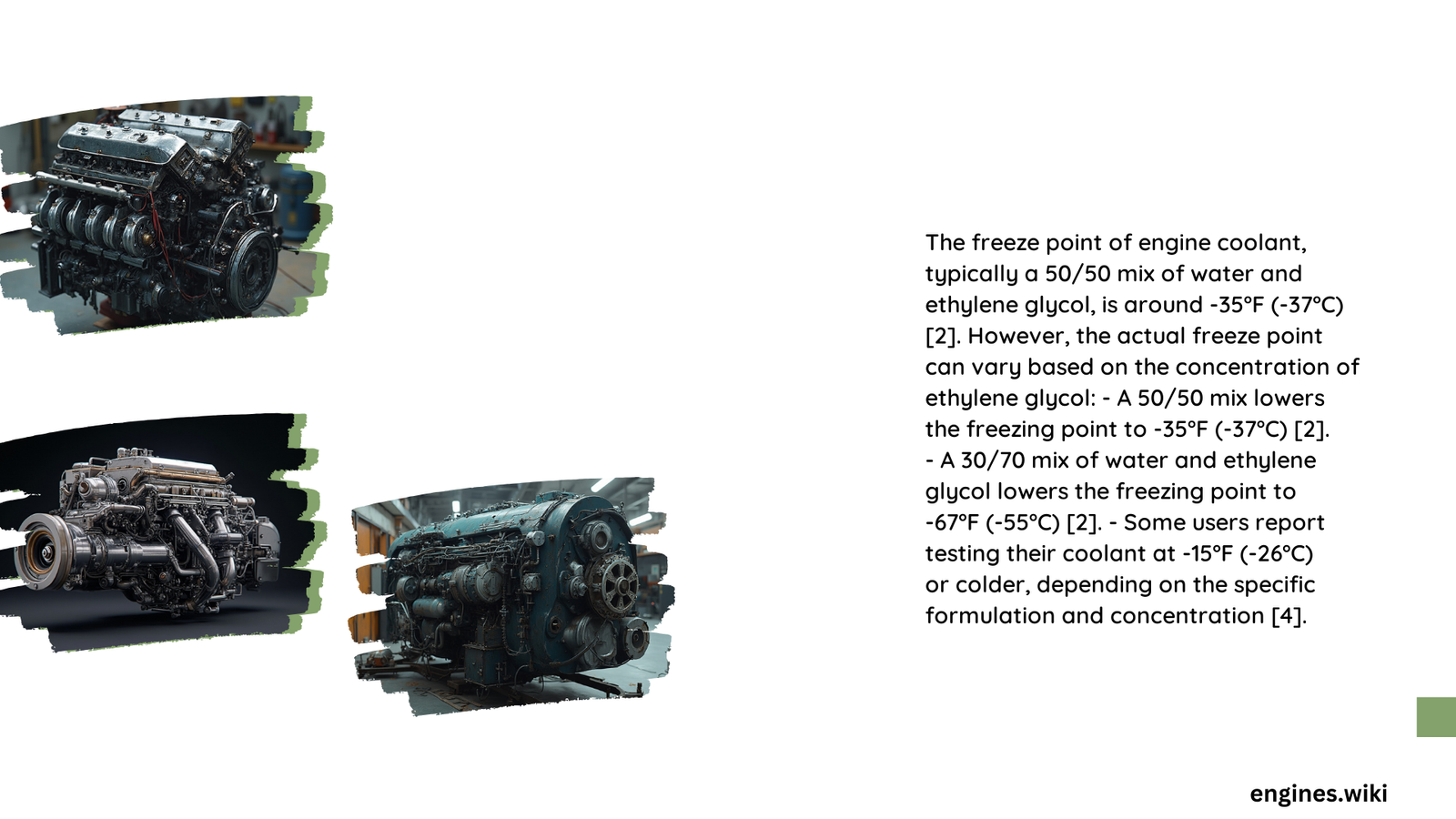Engine coolant freeze point represents a critical parameter in automotive thermal management, determining a vehicle’s ability to operate safely in extreme temperature conditions. Understanding the precise freeze point of coolant mixtures helps prevent catastrophic engine damage by ensuring liquid remains fluid during cold weather, protecting critical engine components from potential cracking and structural failure.
What Determines Engine Coolant Freeze Point?
Chemical Composition of Coolant Mixtures
Engine coolant freeze point primarily depends on two key glycol compounds:
Ethylene Glycol (EG) Characteristics
- Pure EG Freeze Point: -12.8°C (9°F)
- 50/50 Water Mix Freeze Point: -34°C (-34°F)
- 70/30 Water Mix Freeze Point: -64.44°C (-84°F)
Propylene Glycol (PG) Characteristics
- Pure PG Freeze Point: -59°C (-74.2°F)
- 50/50 Water Mix Freeze Point: -28°C (-28°F)
How Do Glycol Concentrations Impact Freeze Point?
Coolant freeze point dramatically changes with concentration variations:
| Concentration | EG Freeze Point (°C) | PG Freeze Point (°C) |
|---|---|---|
| 0% | 0 | 0 |
| 30% | -13.7 | -10 |
| 50% | -36.8 | -28 |
| 70% | -64.44 | -51 |
Why Choose Specific Glycol Mixtures?

Performance Considerations
- Temperature Range Protection
- Lower freeze points prevent coolant solidification
-
Enables reliable engine operation in extreme environments
-
Corrosion Prevention
- Glycol mixtures include corrosion inhibitors
- Protect metal components from oxidation and degradation
Factors Influencing Coolant Selection
- Climate Conditions
- Vehicle Type
- Manufacturer Specifications
- Operational Temperature Range
How to Test Coolant Freeze Point?
Recommended Testing Methods
- Use refrigerated testing baths
- Employ precise temperature measurement tools
- Follow industry standards like ASTM D1177
Essential Testing Equipment
- Calibrated thermocouples
- Refrigerated bath
- Data logging systems
- Stirring mechanisms
What Are Potential Risks of Incorrect Coolant Mixture?
Consequences of Improper Freeze Point Management
- Engine Block Cracking
- Cooling System Failure
- Reduced Heat Transfer Efficiency
- Potential Catastrophic Engine Damage
Best Practices for Coolant Maintenance
- Regular freeze point testing
- Follow manufacturer recommendations
- Use high-quality glycol mixtures
- Replace coolant at recommended intervals
- Monitor coolant condition during routine maintenance
Conclusion
Understanding engine coolant freeze point is crucial for maintaining vehicle reliability and preventing expensive repairs. Proper coolant selection and maintenance ensure optimal thermal management across diverse environmental conditions.
